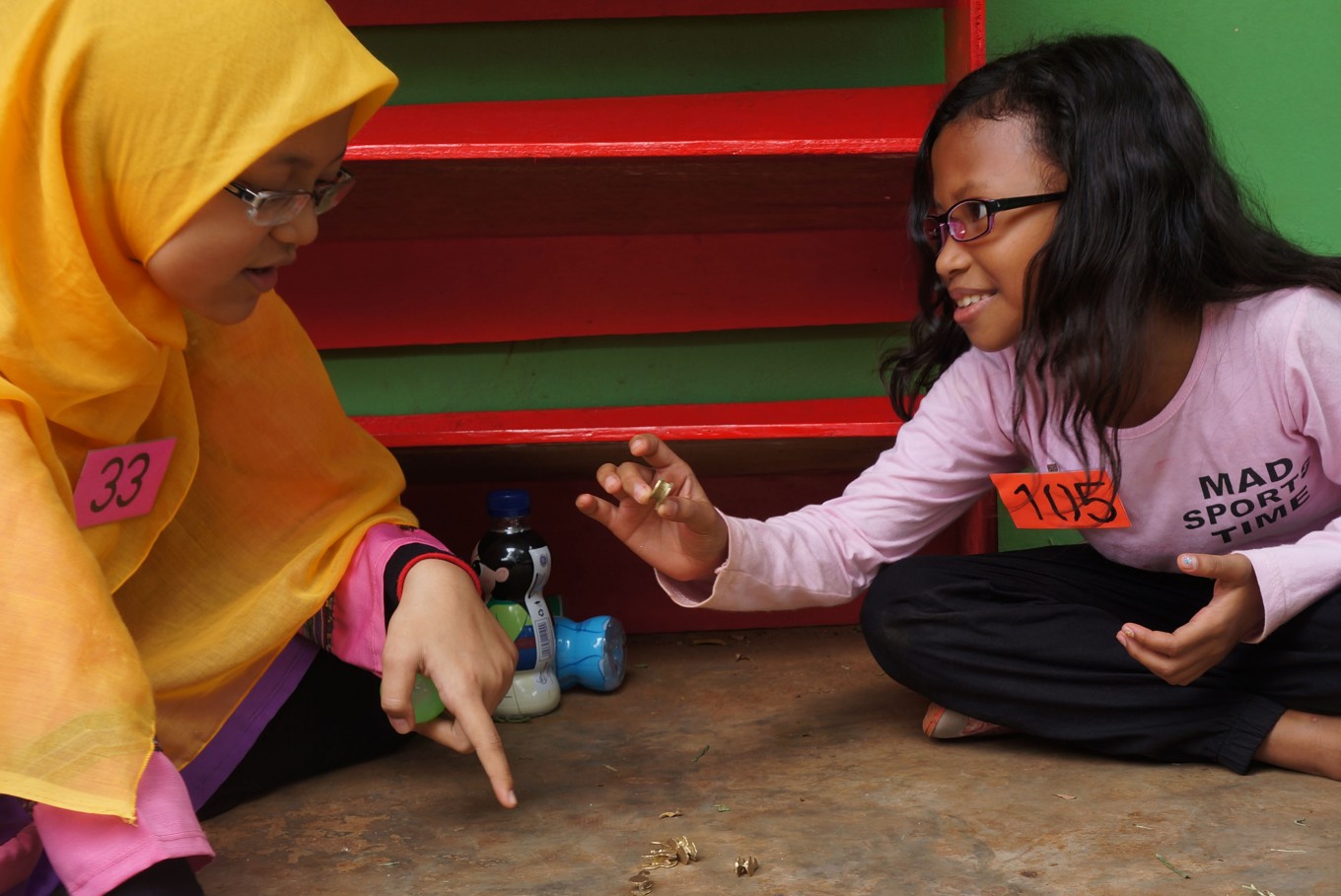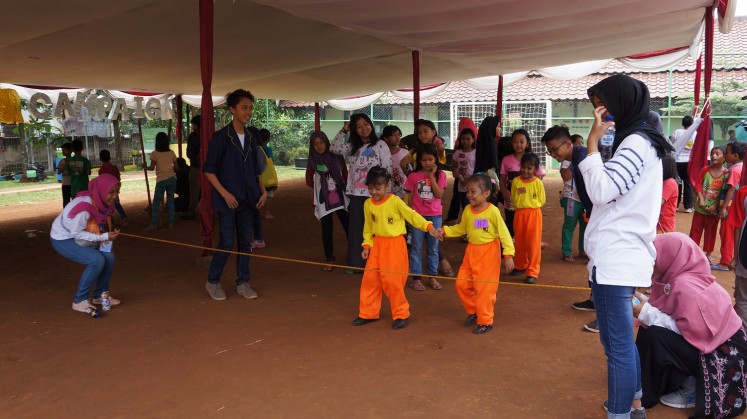Popular Reads
Top Results
Can't find what you're looking for?
View all search resultsPopular Reads
Top Results
Can't find what you're looking for?
View all search resultsCampaign seeks to pull children back to conventional games
Change text size
Gift Premium Articles
to Anyone
C
hildren aged 3 to 12 were seen playing various games at the child-friendly integrated public space (RPTRA) of Cililitan in East Jakarta on Sunday.
Some were walking on bamboo stilts, others jumping rope and yet others were playing congklak, a game involving shells.
Knowingly or not, these children were participating in the Traditional Games Return (TGR) campaign held at 186 RPTRA across Jakarta and at venues in 22 provinces under the auspices of the TGR community.
Children play 'lompat tali karet' during the Traditional Games Return Campaign at RPTRA Cililitan in East Jakarta. (JP/Jessicha Valentina)
The campaign aims not only to revive the popularity of conventional games at a time when electronic gadgets are stealing children’s attention, but also to underline the benefits of playing in children’s development, particularly when it comes to conventional games.
Read also: Introducing traditional games at school
Didiek Eko Yuana, field manager of the campaign's official partner, Save the Children, told The Jakarta Post that these conventional games help develop children’s psychomotor, social-emotional and cognitive development as well as their linguistic skills.
“Stilts, for example, can further the development of children’s psychomotor skills,” explained Didiek, adding that online games offered no such benefits.
Didiek stressed that children, particularly under the age of 8, naturally needed to play. However, parents often failed to realize this, leading them to force children to learn things such as reading and writing at a young age.
“They can learn [to read and write] effectively through various games,” he said. (asw)












